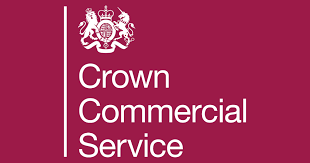Small and medium-sized enterprises (SMEs) play a vital role in the UK economy, and the government is committed to increasing their participation in public procurement. Winning government contracts can provide SMEs with a stable revenue stream, enhanced credibility, and growth opportunities. However, navigating the procurement process can be challenging without the right knowledge and strategy.

This guide will explain how SMEs can get started with UK public procurement and successfully secure contracts.
Why SMEs Should Consider Public Procurement
The UK government spends billions annually on public procurement, and a significant portion of this spending is allocated to SMEs. Engaging in public procurement offers SMEs several benefits:
Stable Revenue Stream: Government contracts can provide long-term financial security.
Enhanced Credibility: Winning public sector contracts enhances an SME’s reputation.
Growth Opportunities: Contracts often lead to further business opportunities in the private sector.
Commitment to SMEs: The UK government has pledged to increase spending with SMEs, making procurement more accessible.
How to Get Started with Public Procurement
To successfully bid for government contracts, SMEs need to take a structured approach. Here are the key steps:
Understand the UK Public Procurement System
Public procurement follows a structured and competitive process. Key regulations and frameworks include:
The Procurement Act 2023 – Introduced to simplify procurement rules post-Brexit.
Public Contracts Regulations 2015 – Governs public sector purchasing.
Find a Tender Service (FTS) – The UK’s main platform for high-value contract opportunities.
Identify Suitable Contract Opportunities
There are multiple platforms where SMEs can find government contract opportunities:
Find a Tender Service (FTS) – For high-value contracts.
Contracts Finder – Lists government contracts over £12,000.
Local Government Websites – Some councils advertise contracts on their own platforms.
Crown Commercial Service (CCS) – Manages frameworks that SMEs can join to access contracts.
Regularly checking these platforms and setting up alerts for relevant contracts can help SMEs stay informed about new opportunities.
Register on Procurement Portals
To participate in government tenders, SMEs must register on relevant procurement portals:
Contracts Finder – Free to use and lists a wide range of opportunities.
CCS Frameworks – Allows SMEs to become pre-approved suppliers.
Digital Marketplaces – Such as G-Cloud (for cloud services) and DOS (for digital projects).
Ensure Compliance and Meet Requirements
Government contracts have strict eligibility requirements. SMEs must ensure they meet:
Financial Stability – Demonstrating the ability to fulfill contract obligations.
Regulatory Compliance – Adhering to industry and legal standards.
Insurance and Accreditation – Meeting specific requirements, such as ISO certifications.
Social Value Commitments – Aligning with government priorities like sustainability and diversity.
Write a Strong Bid Proposal
Winning contracts requires well-prepared bids. Follow these key best practices:
Understand the Buyer’s Needs – Research the contracting authority’s goals and tailor the bid accordingly.
Highlight Unique Selling Points (USPs) – Showcase why your SME is the best choice.
Provide Evidence – Use case studies and testimonials to support claims.
Be Competitive on Pricing – Offer value for money while maintaining profitability.
Address Social Value Requirements – Demonstrate commitments to sustainability and ethical practices.
Submit the Bid Correctly and On Time
Missing a deadline or failing to provide required documents can lead to disqualification. To avoid this:
Double-check submission guidelines.
Ensure all necessary documents are included.
Submit well before the deadline to avoid last-minute issues.
Prepare for Post-Tender Engagement
Some tenders involve additional steps after submission, such as:
Clarification Questions – Buyers may request more details before making a decision.
Presentations or Interviews – Required for complex or high-value contracts.
Being prepared for these stages increases the likelihood of success.
Learn from Feedback and Improve
If unsuccessful, SMEs should request feedback and analyze areas for improvement. Learning from past bids can significantly enhance future success rates.



